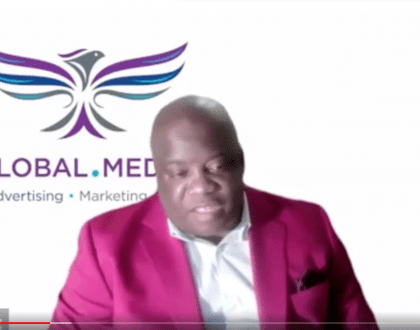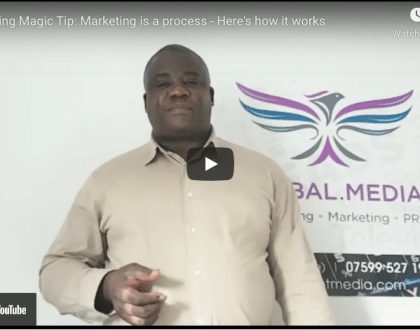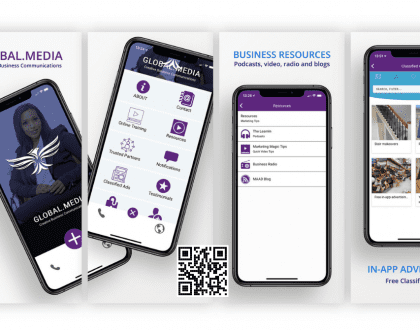Understanding Imposter Syndrome In Business & 7 Strategies To Deal With It

by EnyOsung
Getting to the top in any sector can give you a lot of insecurities and self-doubt that in turn, can negatively affect your mental health and confidence. Imposter syndrome is a real problem for high flyers and entrepreneurs, whether it is a fleeting moment of questioning whether you are worthy of your position or a lingering worry that you will be found out as not being the genius who deserves success. The potentially debilitating feelings that come with feeling like a fraud are rarely spoken about in business. This post sheds light on the experience of believing you are an imposter, and strategies to carry on doing your thing well. By the end, you will see that you are certainly not alone and that those feelings are not necessary.
What is imposter syndrome?
I have to admit that defining imposter syndrome in a way to which people can relate was the biggest struggle for me in putting this post together. Then I stumbled upon an interview with renowned singer Sinead O’Connor and some of her words gave me clarity. Adapting her words for this post, she said “That part of me that was older and more mature understood the success, but another part of me felt like an imposter. I didn’t think it was so much about the quality of [my work] as much as the force of my intention.”
We competently perform the tasks related to our business or area of expertise. After all, we perform superbly every day, producing the results that our role demands. Nonetheless, we experience that nagging feeling that we do not belong. Kirsten Weir described the issue perfectly when she wrote about a PhD Clinical Psychologist student who “…did not just feel he was lacking certain skills. He wondered whether he belonged there at all. There’s a sense of being thrown into the deep end of the pool and needing to learn to swim”.
The psychologists who identified the phenomenon, Suzanne Imes, PhD, and Pauline Rose Clance, PhD, in the 1970s, state that impostor phenomenon occurs among high achievers who are unable to internalise and accept their success. They often attribute their accomplishments to luck rather than to ability and fear that others will eventually unmask them as a fraud.
Prevalence of imposter syndrome
A recent survey found these degrees of severity of imposter syndrome: mild, 5(2.64%), moderate,72(38.09%), severe,103(54.49%) and very severe, 09(4.76%). That amounts to 99.98% of the population experiencing some level of imposter syndrome. Incidentally, the feelings of being a fraud were more severe and prevalent in third-year students.
Imposter syndrome matters in business because it kills dreams and potential. The likes of Tony Robbins and many other motivational gurus preach the importance of and principles of having an entrepreneurial mindset. They tend to write from a perspective of responding to challenges and having ambitions with lofty goals. However, few explicitly address the issue of feeling like a fraud which could be exposed at any moment in your business.
The damage of feeling like an imposter
When we succumb to feelings of being an imposter, the effects can be paralysing by stopping us doing what our position requires. We may doubt our abilities to achieve the goals we set. Moreover, as we know, it takes every ounce of positivity, both in tour intent and actions, to stand any chance of achieving high-performance levels.
At it’s worst, imposter syndrome can impact the subconscious with negative consequences, including feeling doomed to failure, overwhelmed and incapable. All of these can lead to reduced motivation and not giving our full effort to follow our passion for building a successful business.
Imposter syndrome may manifest itself in aiming for generating lower revenues as a result of believing that we must undercharge as we are not worthy of being trusted by more prominent clients. Lowering our business goals is often associated with an irrational fear of reaching out to wealthier clients who could be prepared to pay more if they see the value of your services. Play this folly on, and you will see that the lack of confidence typically leads to slower growth or worse – it can mean letting your passion die out and a return to the rat race of settling for a stable job that allows us to aim for modest ambitions. This scenario is my vision of a disaster for any business.
Roots of imposter syndrome
There are likely to have many multiple sources for feeling like a fraud in our roles. Some may point to an underlying issue of low self-confidence. The online world that feeds us a constant diet of self-promotion and unreal glossy personas can turn any rational person to feeling that we cannot possibly measure up to the images we see. The media and society send the message that people are not good enough the way they are and that they need to change.
The truth is, if you scratch the surface of the most popular influencers or celebrities, you will find evidence that they are human, like the rest of us. Despite their manicured personas and image, they too have bad days. They feel low and insecure at times, and their daily lives are nowhere near as shiny and bulletproof as they portray on their heavily filtered profiles. The curious thing is that we know these to be a fact, yet we still find reasons to question our own validity. Let’s agree that whatever the root of your imposter syndrome, it is unnecessary and has a potentially damaging impact on our chances of achieving our goals. So what should we do?
Dealing with reality
There is always someone who knows more and can do more and better in everything in life. In business, we are not competing to be the very best in the world in what we do as a professional or business leader. Global business leaders like Steve Jobs, Bill Gates or Jeff Bezos started to build organisations that provide a needed service that they saw could disrupt their industries; they did not set out to be the best at anything on day one. Similarly, we should seek to provide a product or service that solves people’s issue (s) by giving something for which customers are willing to pay good money. When that happens to the level to pay the bills and give us the lifestyle we want, we should be happy that we are doing a great job. The challenge is then for us to do more of it while continuing to satisfy clients.
Just let your feelings of being an imposter go – ignore them and don’t waste a second of your time and energy thinking about what is a complete waste. However, I understand that merely letting go is not always easy. So here are some strategies to consider reinforcing the fact that you are on the right track in your role.
-
Positive affirmation
Tell yourself that you are good enough if people are willing to pay you for what you do. Tell yourself this fact every day. Being authentic rather than trying to fit a mould can lead to true happiness and satisfaction with self. Clance urges people with impostor feelings to stop focusing on perfection. “Do a task ‘well enough,’” she says. It’s also important to take time to appreciate the fruits of your hard work. “Develop and implement rewards for success — learn to celebrate”
-
Focus on your qualities
Break away from the beliefs and messages that can make you feel that you don’t belong. Recognising your abilities and successes can help you to discover who you are and value your whole self. Make a collage that describes how you see yourself in positive ways using your favourite quotes, message, images, and pictures of yourself. Remind yourself with these messages who you are and what you value about yourself rather than using social media, magazines, and commercials to compare, criticise, and judge yourself.
-
Build a great team
Building an empire requires ‘rewiring yourself to reap the benefits of a team of super-achievers without suffering self-esteem erosion. Your creative employees can make decisions on their own to demonstrate the confidence and capability leaders trust them with’. I recall Steve Job’s statement that “It doesn’t make sense to hire smart people and tell them what to do; we hire smart people so they can tell us what to do. Job’s idea when building Apple Inc. was more significant than everyone else’s thoughts. It is ridiculous to suggest he was the world’s most excellent expert in every part of the Apple technologies and innovations. You see, he didn’t steal other people’s ideas. He incorporated people and their insights into succeeding in his plans. His expertise was having the vision and the ability to manage a team of people to achieve his dreams.
-
Total commitment
Put your heart, mind and soul into even your smallest acts. Giving your best every time is the secret to making a realistic assessment of your abilities and qualities. “Most high achievers are pretty smart people, and many brilliant people wish they were geniuses. However, most of us aren’t. We have areas where we’re quite sharp and areas where we’re not so smart. Professor Imes suggests writing down the things you’re truly good at, and the areas that might need work. That can help you recognise where you’re doing well, and where there’s legitimate room for improvement.
-
Continuous learning
It is as we develop that we permanently succeed. So be prepared to be challenged and to leave your comfort zone often. Continuous learning—defined as a program that enables you to enhance their skills and knowledge through a personalised development design—empowers you to perform effectively and adapt to changes in the workplace. Be honestly introspective and acknowledge what you don’t know then take steps to learn what you need to play your role today and in the future – this may be reading books, undertaking courses, working with a mentor or coach or seeking input from experts.
-
Networking
All too often, people suffer from imposter syndrome in silence. There is an element of shame that if we talk about the feelings, people will instantly know that we are not that great. I have explained the fact that you are not alone if you have these feelings. Networking (that is meeting face-to-face) with people in your sector, organisation or other businesses is the antidote to realising that you are not alone. The right networking setting helps to make and keep friends who are supportive and promote a positive lifestyle and view of self rather than ones that may be critical and judgmental.
-
Take action
Learn from David Cliff of Gedanken’s information on coming to terms with imposter syndrome in this video. He suggests acknowledging your success, stop comparing yourself to others, and taking action.
Bringing it together
You see the key thing in any business is that we have a product or service for which people are willing to pay us. I have been there myself, and virtually every entrepreneur has felt the pangs of imposter syndrome and dealt with it. Dwelling on it did not do me any good. It is imperative to moving on from it quickly. Doing so doesn’t make you deluded, especially when you are succeeding at objective measures of your performance. Admittedly, healthy self-perception alone is not sufficient to succeed in business. Success comes from a complex combination of factors, not least hard work, a positive mindset, persistence and perhaps most importantly a documented plan to achieve your objectives. So when imposter syndrome strikes, dust it off and soldier on with your project.
*********************************************************************************************************************
Global.Media provides expert online and offline advertising, and marketing on all digital platforms to get qualified leads for businesses. Check out our Services page to see how our advertising and marketing services can help your business to get more customers and sell more, faster. Why not sign up for our newsletter using the simple form on the right? You can also follow us on social networks. Finally, we’d love for you to share this post with your network using the share buttons below.
********************************************************************************************************************
We’d love to have your feedback and suggestions about this post. What is your experience oof imposter syndrome in your work? Strategies have you found effective in dealing with feelings of self doubt? Pease leave your comments in the Comments Section below.
Other posts you may like
One thing you need to do to sell more LinkedIn – and how to do it
Why Reviews You Can Trust Are Vital For Your Business Success – And How To Get Them: Marketing Magic Tips
Getting & Keeping The LinkedIn Lead Generation Advantage
–
Our Digital Marketing Services:
Website Design | Search Engine Optimisation (SEO)| LinkedIn Marketing | Content Marketing| Email Marketing| Pay-Per- Click| Social Media Marketing| App Development & Marketing| Business podcasts | Video marketing
HOME | ABOUT | MaAD BLOG | PODCASTS | TESTIMONIALS
Download Our Mobile App to listen to our podcasts on the go Get Mobile App
Recommended Posts

Eny talks with Lydia on The Joyful Path Podcast
9th December 2022

Marketing is a process – Here’s how it works
25th January 2022

Why Southwest Businesses need the Global.Media App right now
16th January 2022

